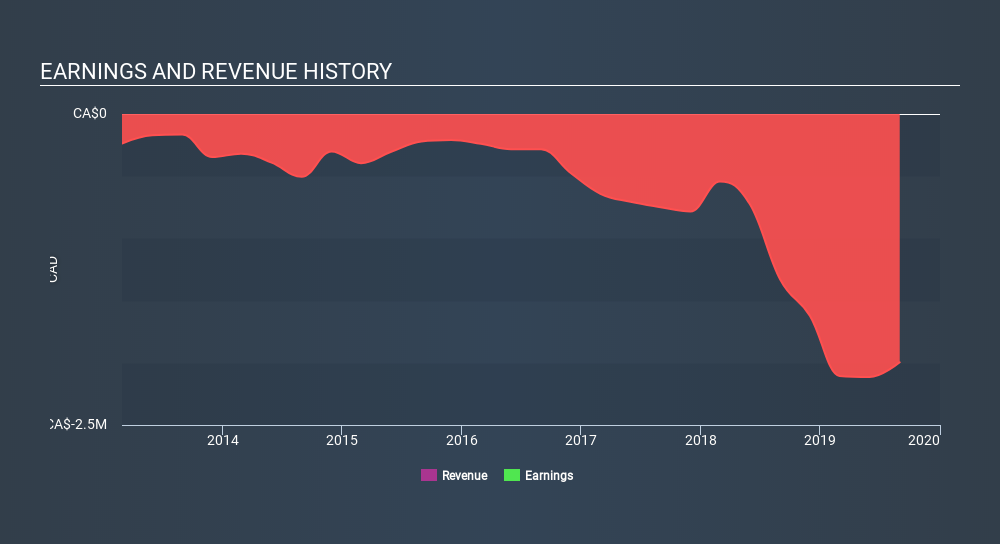Benchmark Metals is a smaller company with a market capitalization of CA$39m, so it may still be flying under the radar of many institutional investors. Our analysis of the ownership of the company, below, shows that institutions are noticeable on the share registry. Let’s delve deeper into each type of owner, to discover more about Benchmark Metals.
What Does The Institutional Ownership Tell Us About Benchmark Metals?
Many institutions measure their performance against an index that approximates the local market. So they usually pay more attention to companies that are included in major indices.
Hedge funds don’t have many shares in Benchmark Metals. Looking at our data, we can see that the largest shareholder is Eric Sprott with 16% of shares outstanding. Sprott Asset Management, LP is the second largest shareholder with 7.0% of common stock, followed by James Greig, holding 2.2% of the stock. James Greig also happens to hold the title of Member of the Board of Directors.
A deeper look at our ownership data shows that the top 8 shareholders collectively hold less than 50% of the register, suggesting a large group of small holders where no one share holder has a majority.
While studying institutional ownership for a company can add value to your research, it is also a good practice to research analyst recommendations to get a deeper understand of a stock’s expected performance. Our information suggests that there isn’t any analyst coverage of the stock, so it is probably little known.
Many institutions measure their performance against an index that approximates the local market. So they usually pay more attention to companies that are included in major indices.
We can see that Benchmark Metals does have institutional investors; and they hold 7.0% of the stock. This can indicate that the company has a certain degree of credibility in the investment community. However, it is best to be wary of relying on the supposed validation that comes with institutional investors. They too, get it wrong sometimes. If multiple institutions change their view on a stock at the same time, you could see the share price drop fast. It’s therefore worth looking at Benchmark Metals’s earnings history, below. Of course, the future is what really matters.
Hedge funds don’t have many shares in Benchmark Metals. Looking at our data, we can see that the largest shareholder is Eric Sprott with 16% of shares outstanding. Sprott Asset Management, LP is the second largest shareholder with 7.0% of common stock, followed by James Greig, holding 2.2% of the stock. James Greig also happens to hold the title of Member of the Board of Directors.
A deeper look at our ownership data shows that the top 8 shareholders collectively hold less than 50% of the register, suggesting a large group of small holders where no one share holder has a majority.
While studying institutional ownership for a company can add value to your research, it is also a good practice to research analyst recommendations to get a deeper understand of a stock’s expected performance. Our information suggests that there isn’t any analyst coverage of the stock, so it is probably little known.
- Source, Simply Wall St
